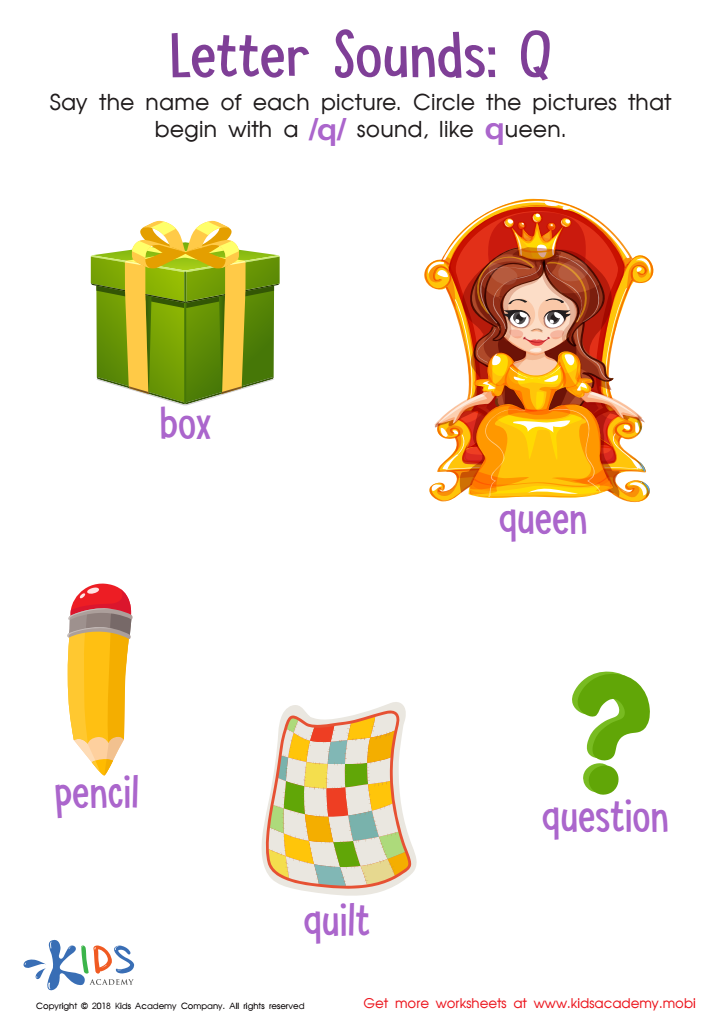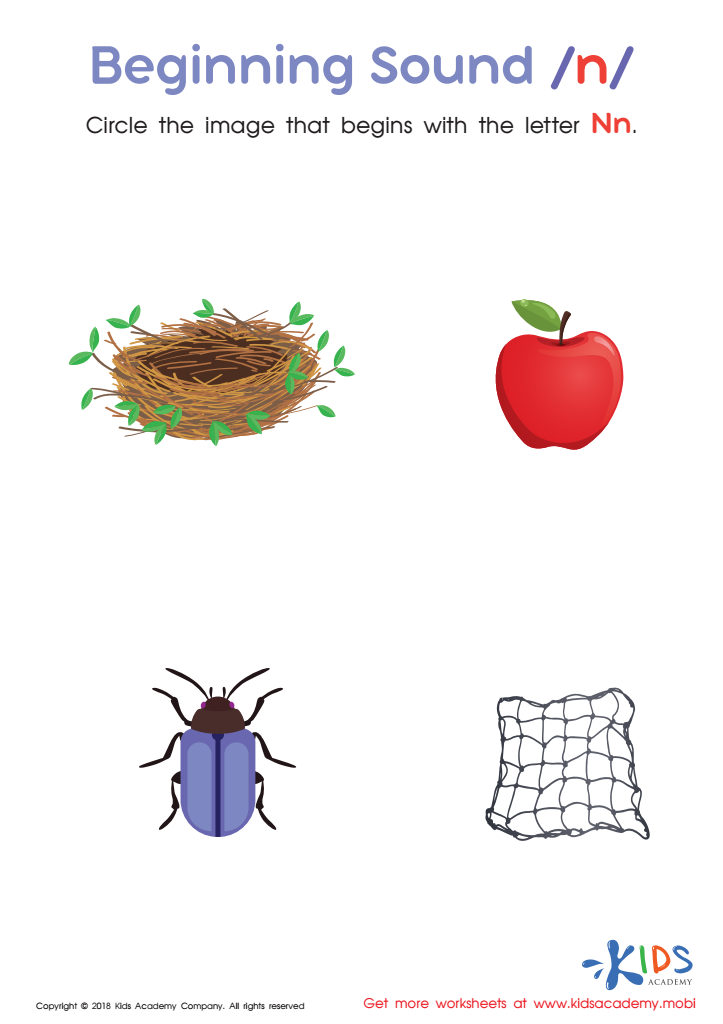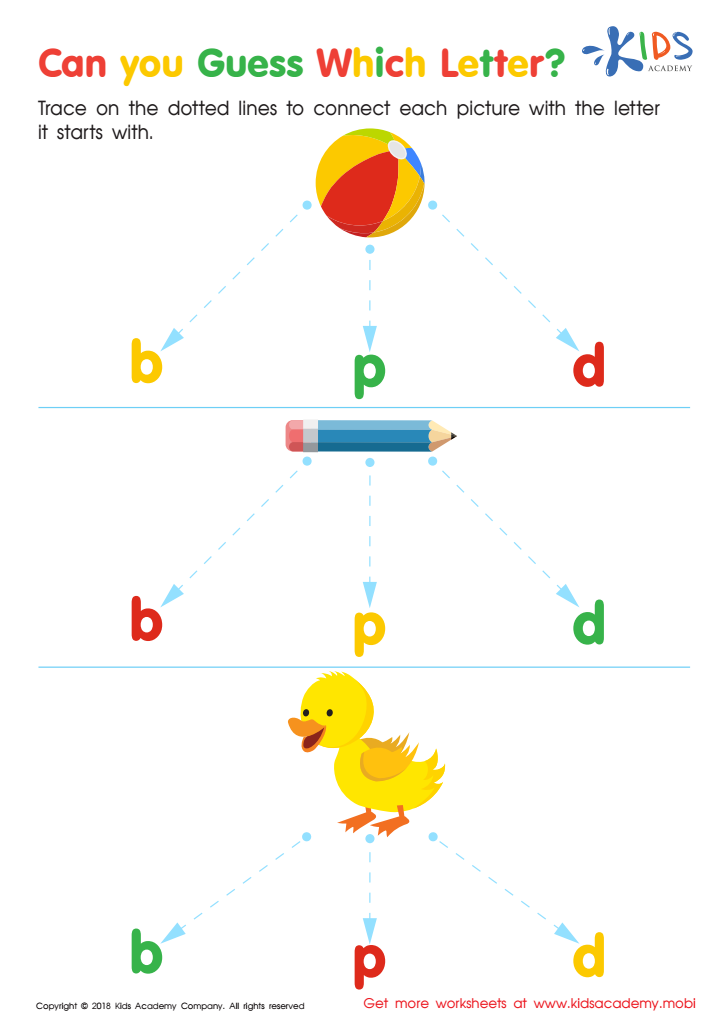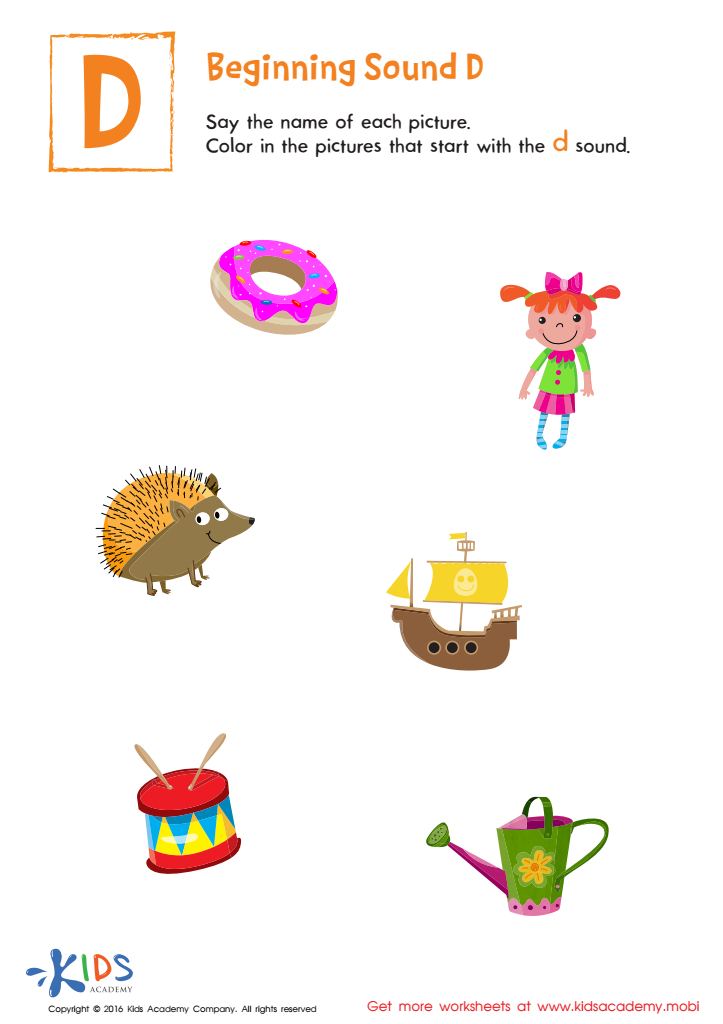Reading readiness Normal Phonics Worksheets for Ages 5-6
5 filtered results
-
From - To
Discover our "Reading Readiness Normal Phonics Worksheets" designed for children ages 5-6. These engaging and interactive worksheets aim to enhance phonics skills, laying a strong foundation for early reading. Our resources include a variety of fun activities that foster letter recognition, blending sounds, and simple word recognition. Perfect for at-home learning or classroom settings, these worksheets stimulate young minds and promote a love for reading. By integrating playful and educational exercises, children will improve their phonetic awareness and gain confidence as they embark on their reading journey. Start cultivating your child's reading skills today with our expertly crafted phonics worksheets!


Letter Q Sounds Worksheet


Beginning Sound «n» Worksheet


Can you Guess Which Letter? Worksheet


Phonological Awareness: Assessment 1 Worksheet


Beginning Sound D Worksheet
Reading readiness and phonics instruction are crucial for children ages 5-6, as they establish the foundation for literacy. At this age, children are developing essential skills such as phonemic awareness, which is the ability to hear and manipulate sounds in words. Normal phonics programs teach children the relationship between letters and sounds, enabling them to decode unfamiliar words, thus fostering confidence in their reading abilities.
Parents and teachers should prioritize reading readiness because early literacy skills are closely linked to overall academic success. Children who learn to read proficiently in the early years are more likely to excel in subsequent grades, enhancing their learning opportunities. Additionally, phonics instruction helps improve vocabulary and comprehension, making it easier for children to express themselves and understand what they read.
Moreover, instilling a love for reading at an early age primes children for lifelong learning. When kids feel competent in their reading skills, they are more likely to engage with books, fostering creativity and critical thinking. By focusing on reading readiness through normal phonics, parents and teachers not only support children's immediate learning needs but also invest in their long-term educational journeys and personal development.
 Assign to My Students
Assign to My Students
















